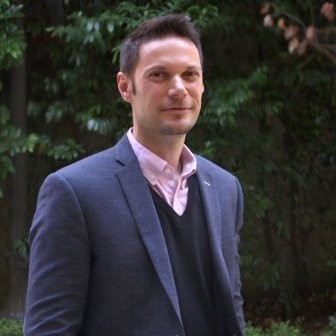IIT Seminar Series: Dr. Patrick Allard
Tue, October 8, 2019 10:00 AM at 162 Food Safety and Toxicology Building
 The Institute for Integrative Toxicology presents Dr. Patrick Allard, Assistant Professor, Institute for Society and Genetics, University of California Los Angeles, to speak on, “Epigenetic Mechanisms of Inheritance of Environmental Exposures,” on Tuesday, October 8, 2019, at 11:00 a.m. in 162 Food Safety and Toxicology Building. Dr. Sudin Bhattacharya will host this seminar. If you are interested in meeting with Dr. Allard, please contact Kasey Baldwin, kbaldwin@msu.edu.
The Institute for Integrative Toxicology presents Dr. Patrick Allard, Assistant Professor, Institute for Society and Genetics, University of California Los Angeles, to speak on, “Epigenetic Mechanisms of Inheritance of Environmental Exposures,” on Tuesday, October 8, 2019, at 11:00 a.m. in 162 Food Safety and Toxicology Building. Dr. Sudin Bhattacharya will host this seminar. If you are interested in meeting with Dr. Allard, please contact Kasey Baldwin, kbaldwin@msu.edu.
Bio:
Patrick Allard is an Associate Professor in the Institute for Society & Genetics at UCLA. Dr. Allard received his BSc from University of Toulouse, France, and his MSc in Biology of Aging from University of Paris. He then completed his PhD degree in Biology from McGill University, Canada, and his postdoctoral fellowship position in the Department of Genetics at Harvard Medical School, before joining UCLA as Faculty in 2012.
Dr Allard’s work resides at the intersection of genetics, epigenetics, developmental biology and environmental health. Specifically, his laboratory works on the development and use of transgenic in vivo reporters as well as stem cell-based assays that are reflective of reproductive and transgenerational impairments following exposure to environmental toxicants. His research focuses on the effect of environmental exposures on reproduction has been published in several high-profile journals including Proceedings of the National Academy of Sciences (PNAS), PLOS Genetics, Cell Reports, and Environmental Health Perspectives. Dr Allard has received multiple awards and grants including a Burroughs Wellcome Innovations in Regulatory Science Award and funding from NIEHS and NIAAA.
The Allard laboratory website can be visited at: https://www.theallardlabatucla.org/
Lecture Synopsis:
Germ cells are the bridge between generations and their integrity is paramount to the health and viability of all organisms. However, how germ cells integrate environmental cues and mediate transgenerational inheritance are still poorly understood. Here, we describe the use of several model systems, including C. elegans and ES cells-derived mammalian germ cells, to better understand how the complex developmental program unique to germ cells is affected to environmental exposures. The combination of these models allows us to dissect the genetic pathways at the root of germline dysfunction, epigenetic impact, and transgenerational effects.

